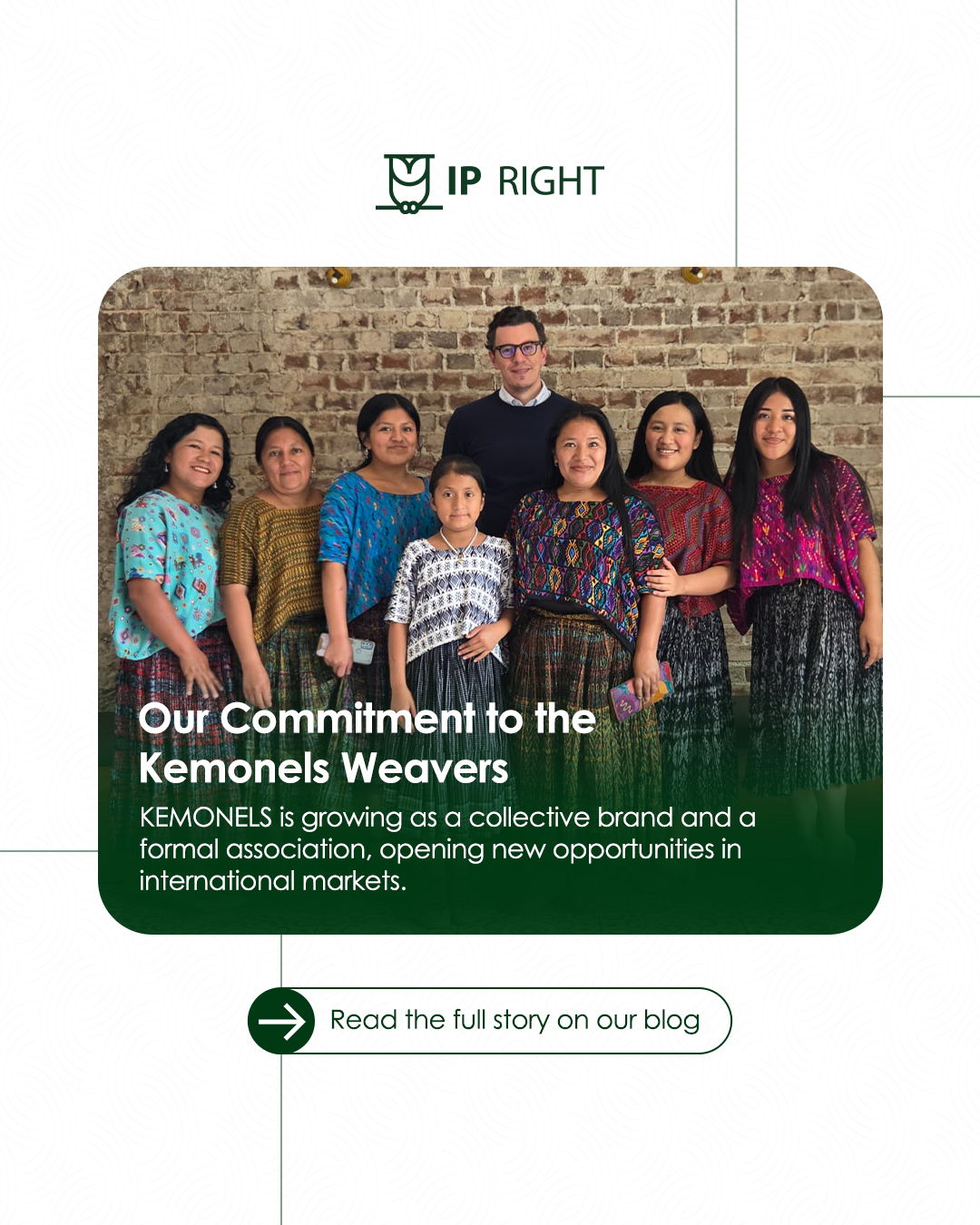

Our Commitment to the Kemonels Weavers and Their Dreams
At IP Right, we believe that law can be a tool to transform lives, open doors, and give a voice to those who are often invisible.
Last year, we made a commitment that fills us with pride: to support a group of women weavers from Tactic, Alta Verapaz, who produce traditional textiles on backstrap looms and for whom the sale of these textiles is, in most cases, the only source of income for their households.
The story began with Ángela Chiquín, a 23-year-old recognized by WIPO for her entrepreneurship. Angela contacted us to register the collective trademark KEMONELS. When we started working with her, we discovered that the group was not formally established, which prevented us from moving forward. Thus, the project grew from a simple registration into the creation of a non-profit Civil Association—an essential step to protect their brand and open doors to new programs and markets.
Along this journey, great opportunities arose: thanks to the connection with The Quetzal Collective, the weavers became their main textile suppliers, and their work is already being exported to the United States. With the support of the German Cooperation Agency (GTZ), they are now preparing to expand into Europe. But for all this to become a reality, they needed to formally incorporate as a legal entity—an indispensable condition to access such support and consolidate their opportunities. WIPO itself reinforced this urgency, warning that without formalizing their association, Kemonels would be excluded from its program supporting traditional knowledge enterprises.

That is why, on September 14, we took a historic step: six women traveled more than five hours from their community to Guatemala City to sign the deed of incorporation of their association. It was a moment filled with emotion and hope—the first step to bringing their art to the world under a protected identity.
At IP Right, we provided this support pro bono, assuming the legal and administrative costs, because we are convinced that traditional knowledge and artisanal work deserve the same protection as any innovation.
We thank @AmCham Guatemala, which recently included this case in its pro bono program along with the @Intellectual Property Registry, and all the allies who made this process possible.
This project is much more than a legal case: it is proof that law can be a driver of social change. It means standing beside brave women who, with needle, thread, and loom, weave not only textiles, but also possible futures for their families and their community.
At IP Right, we remain committed to using law to open paths and protect dreams.